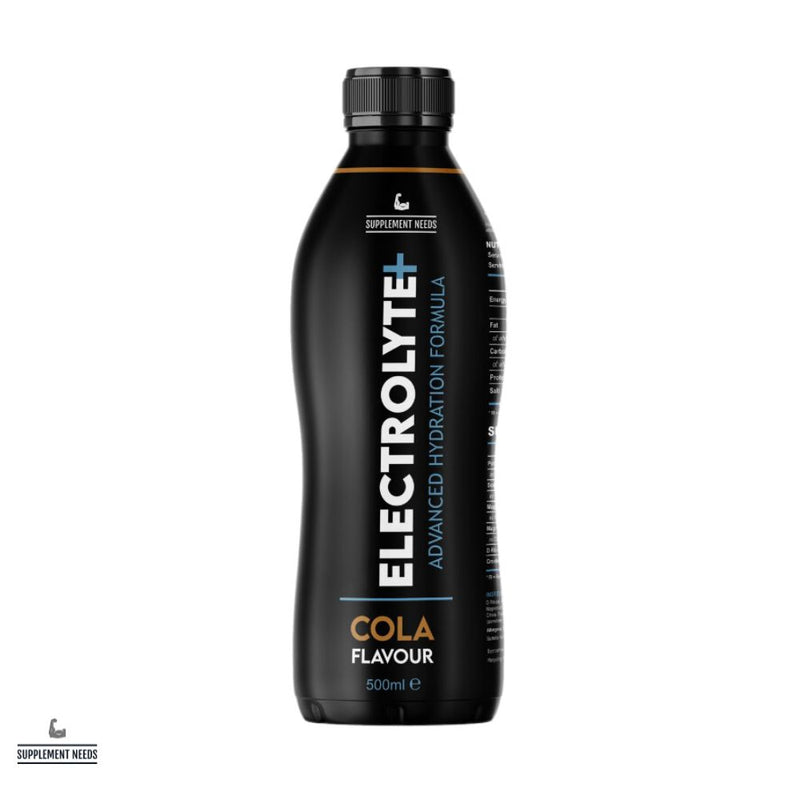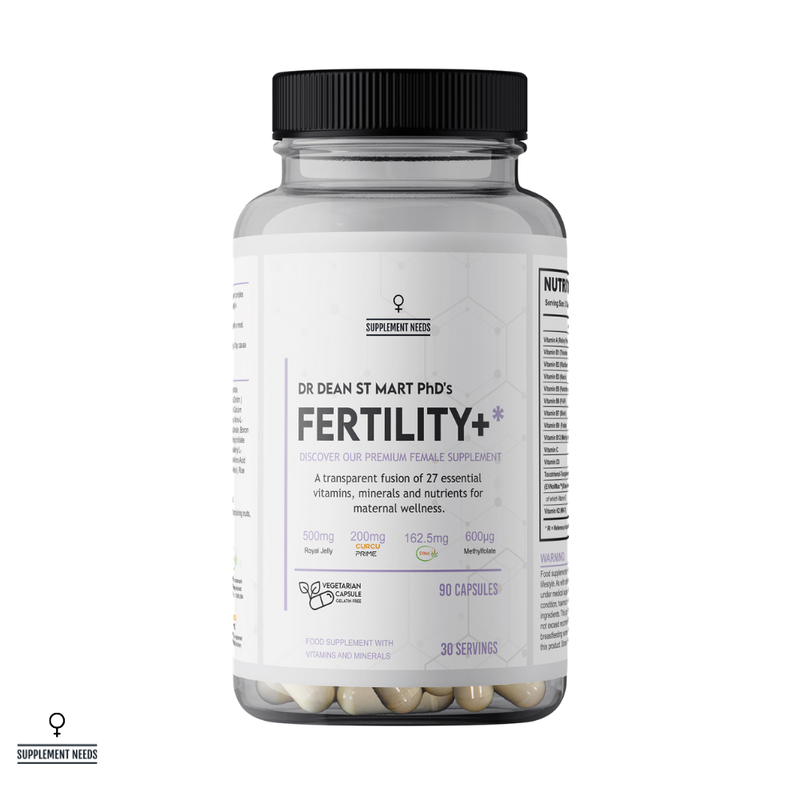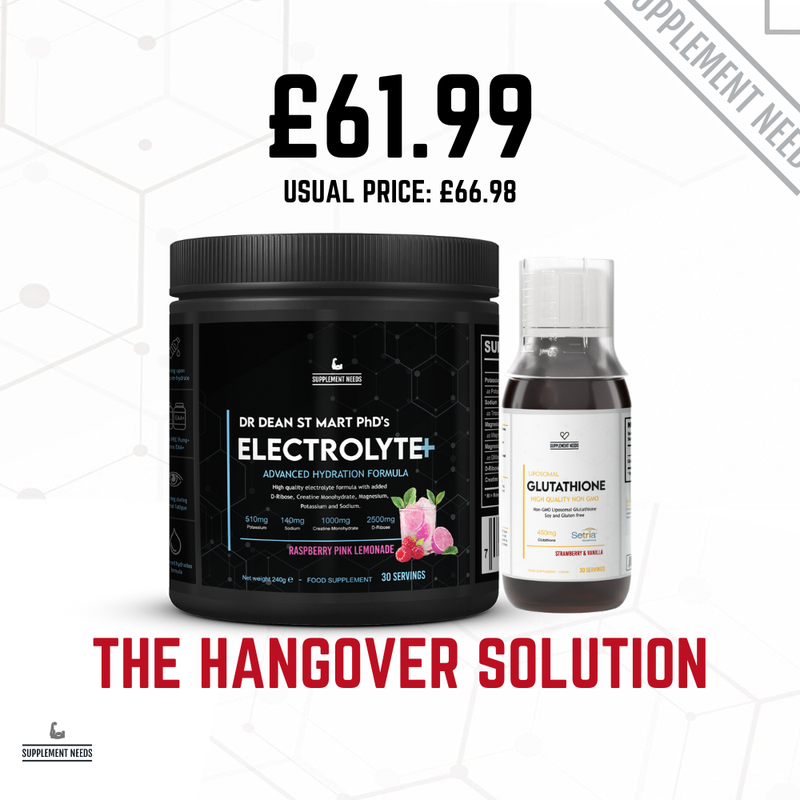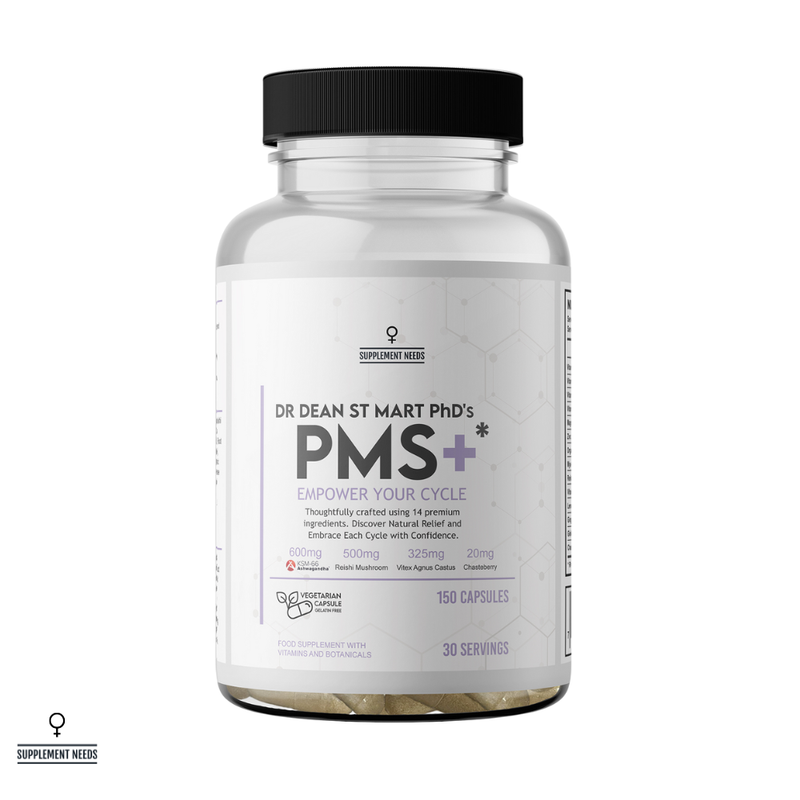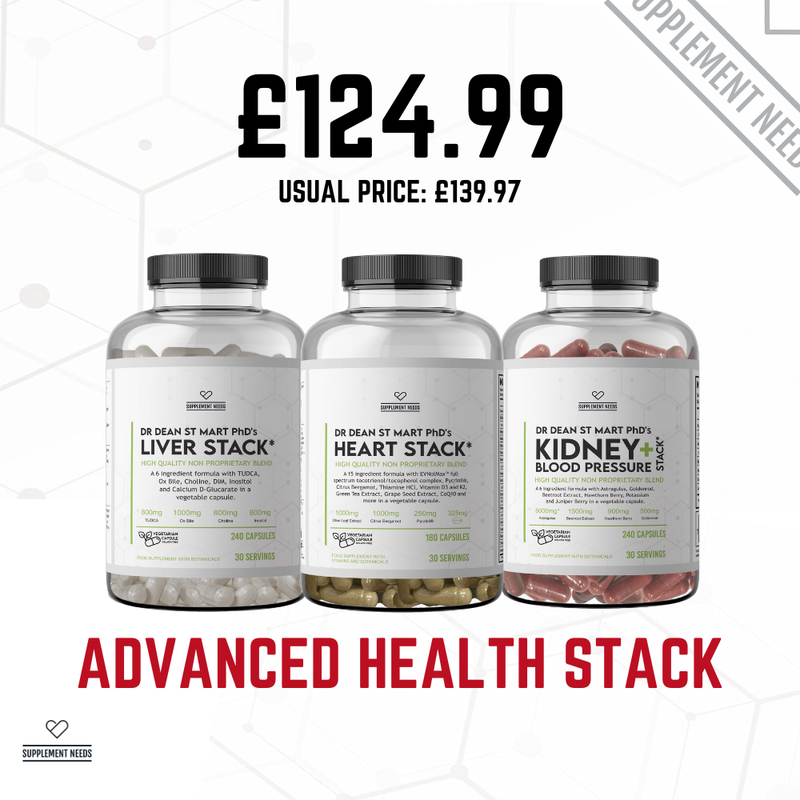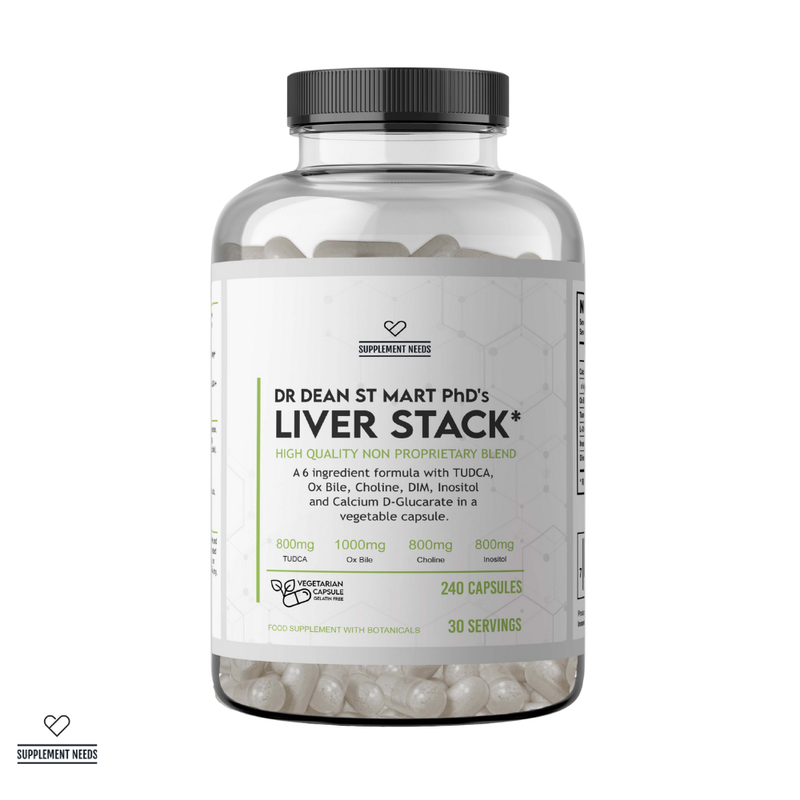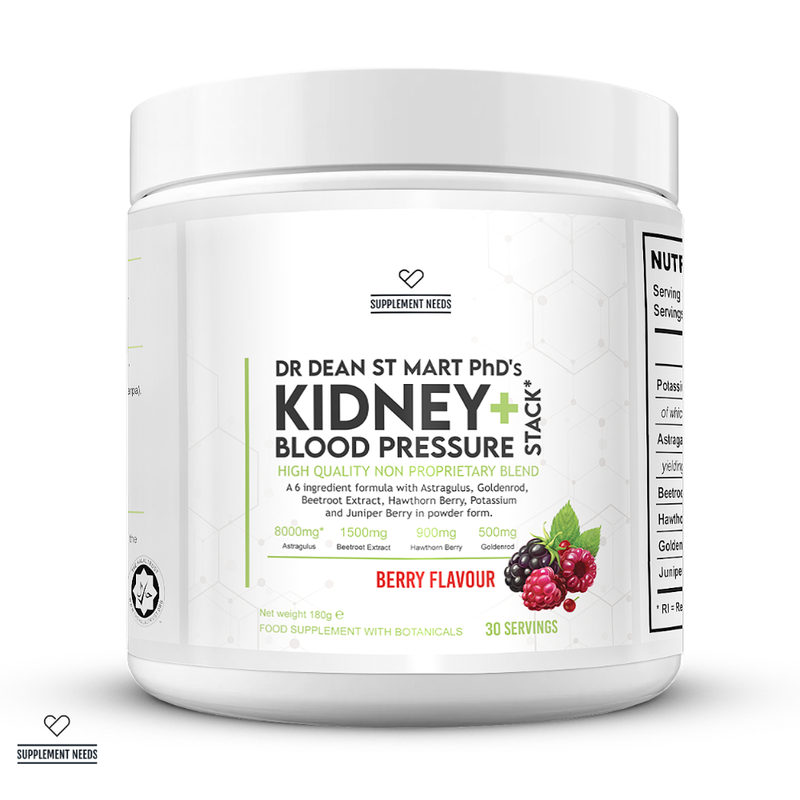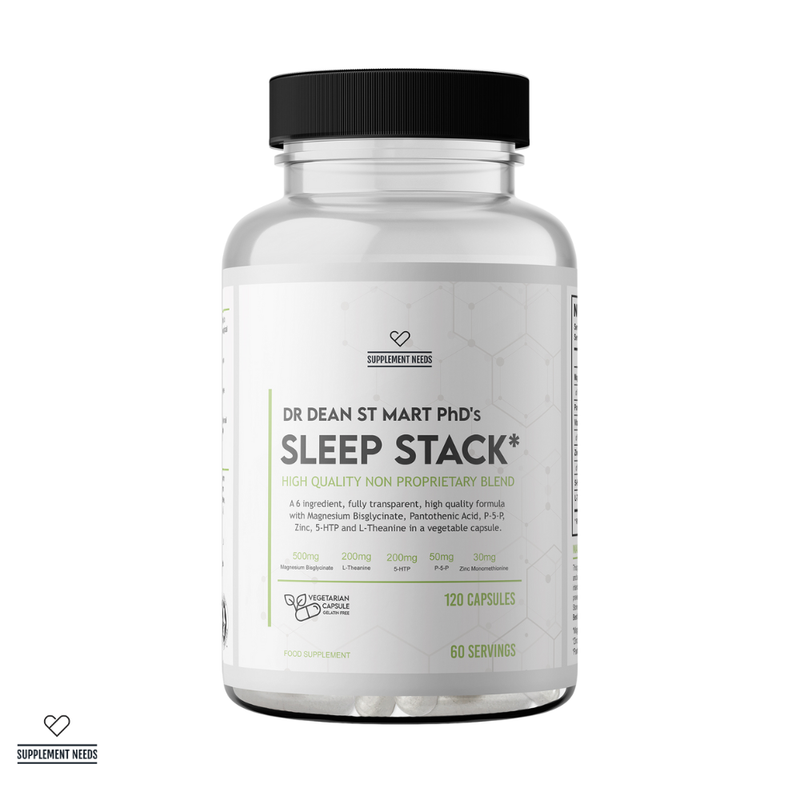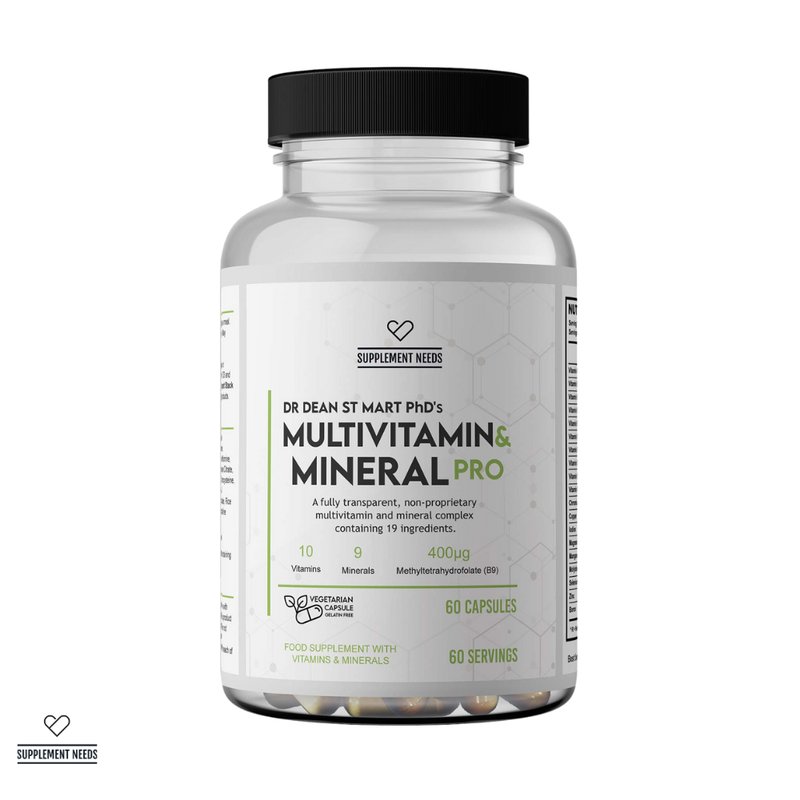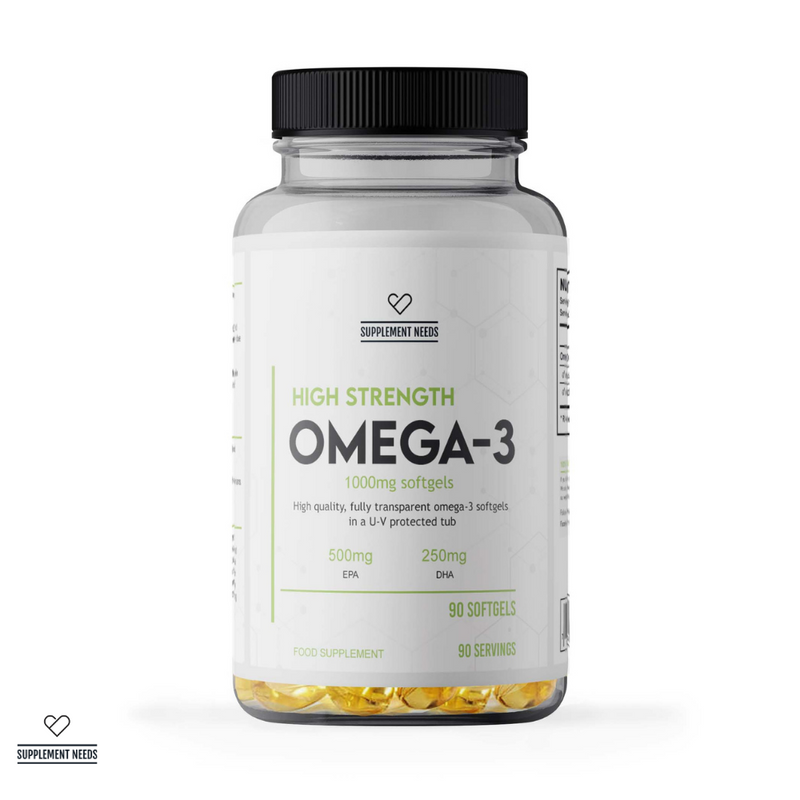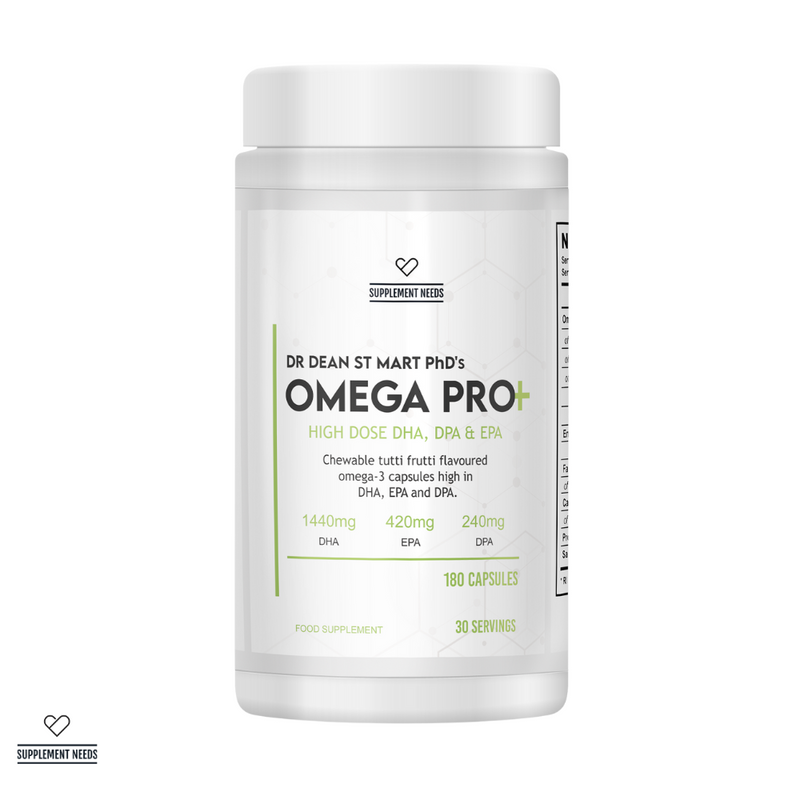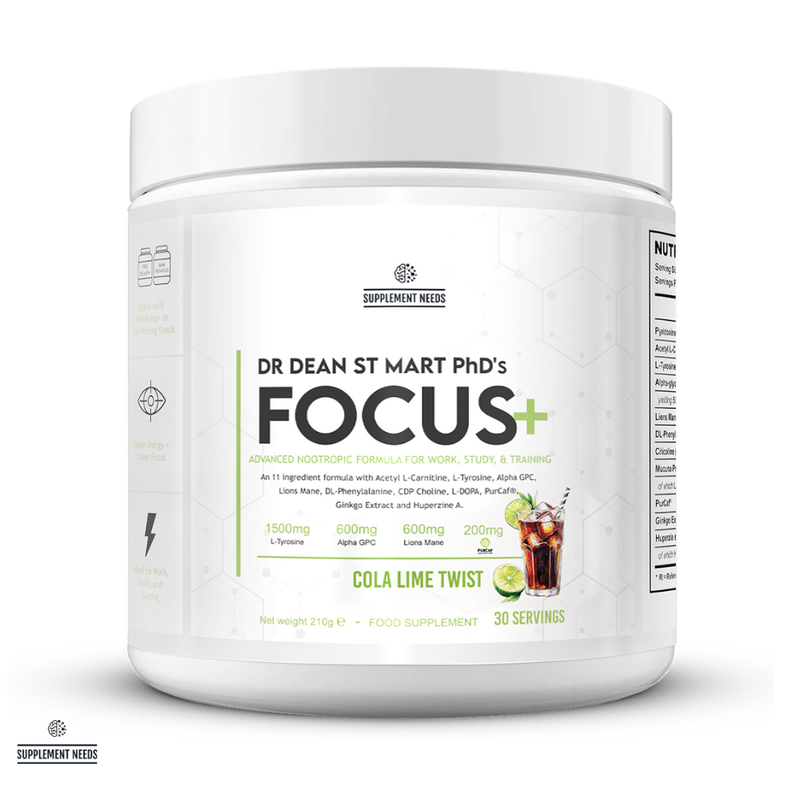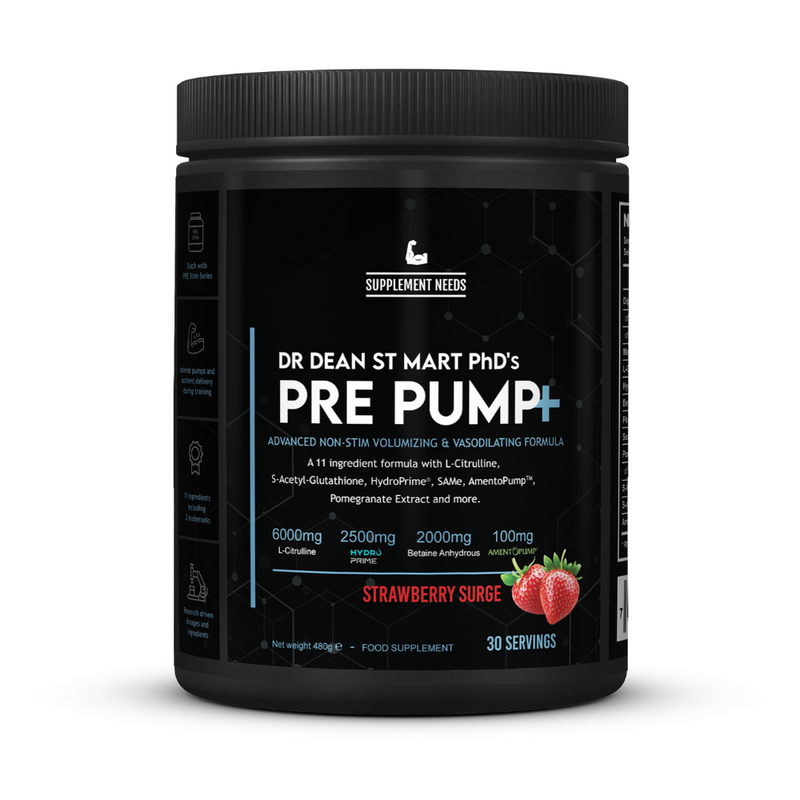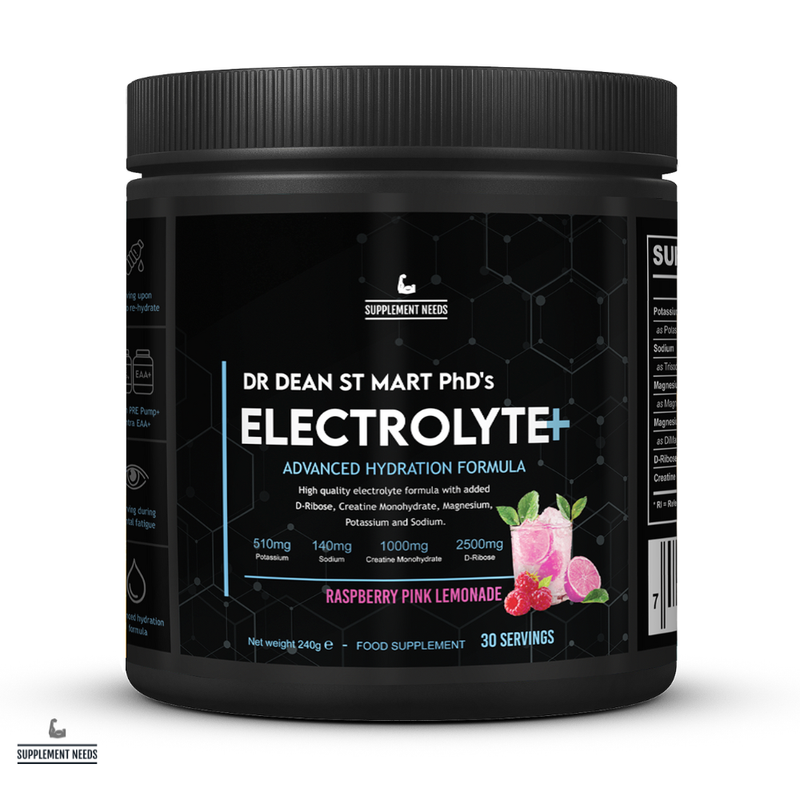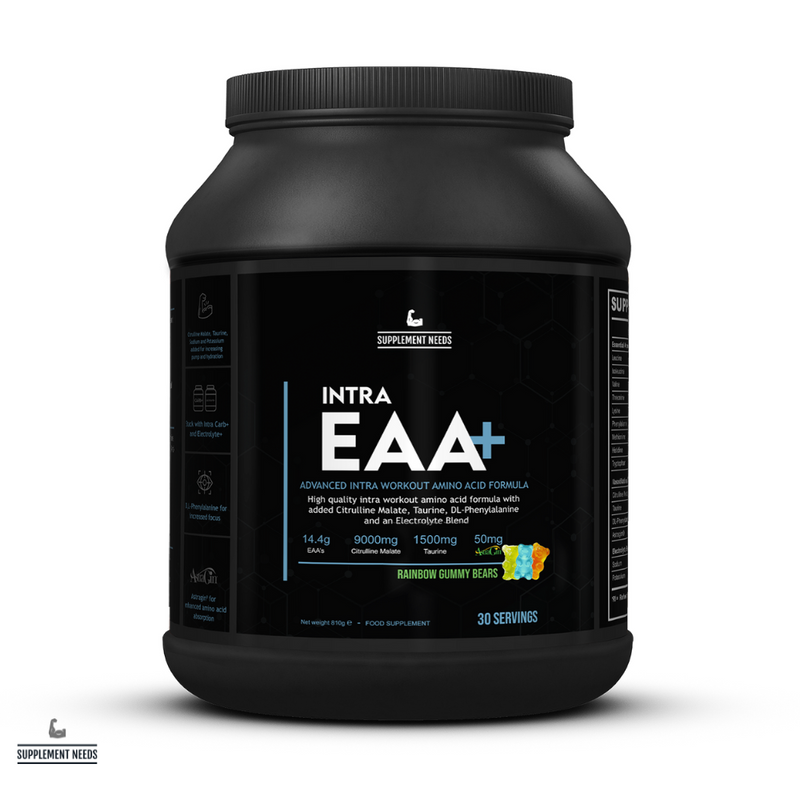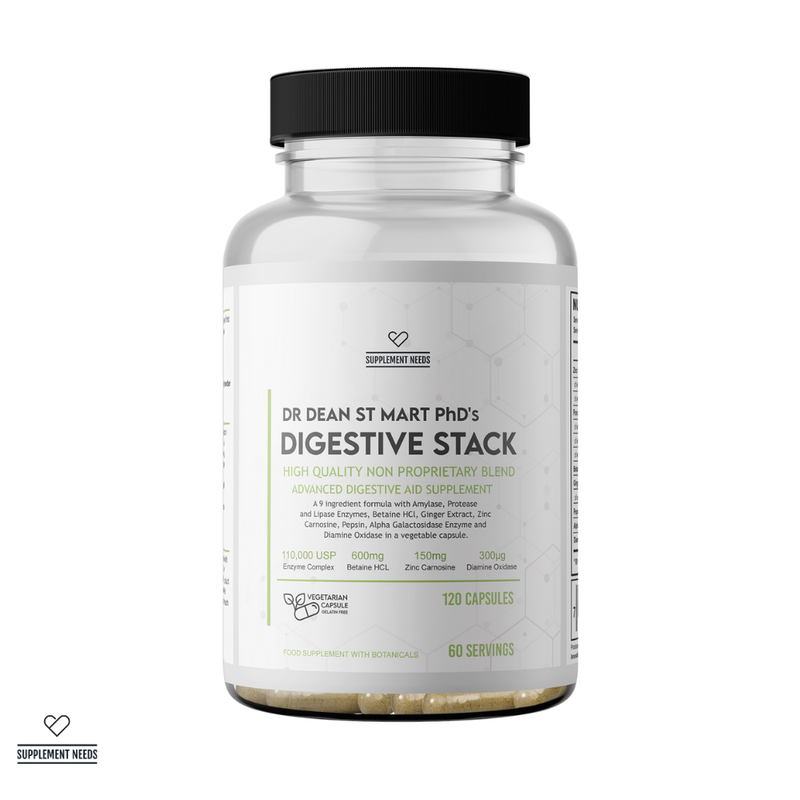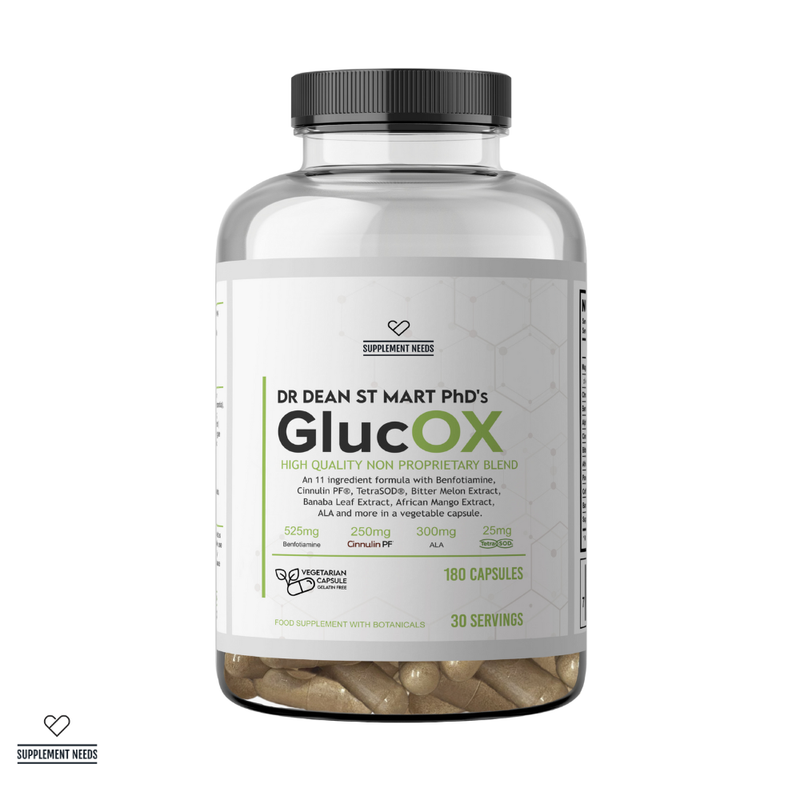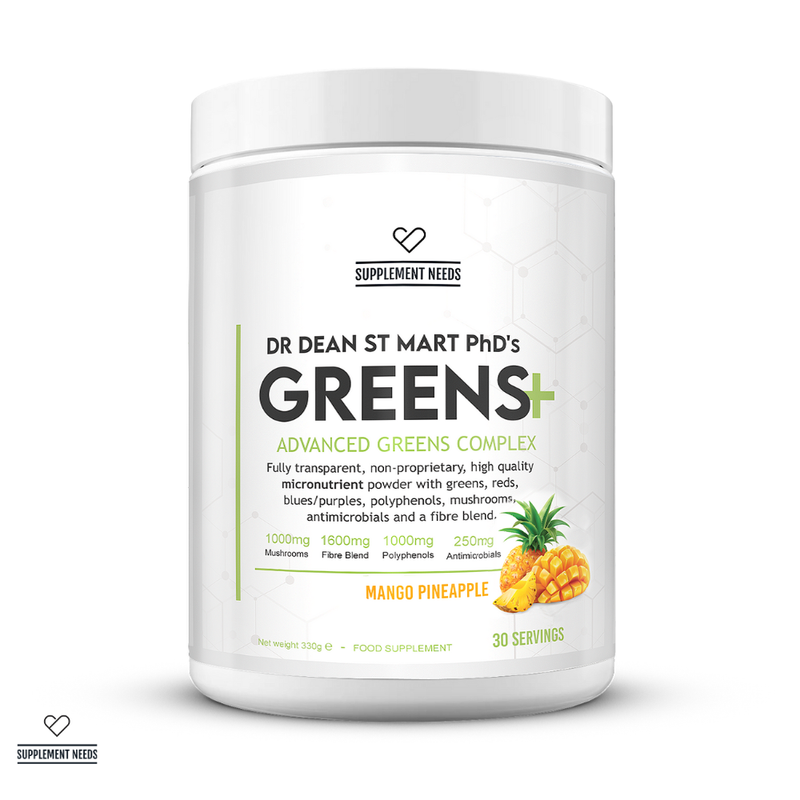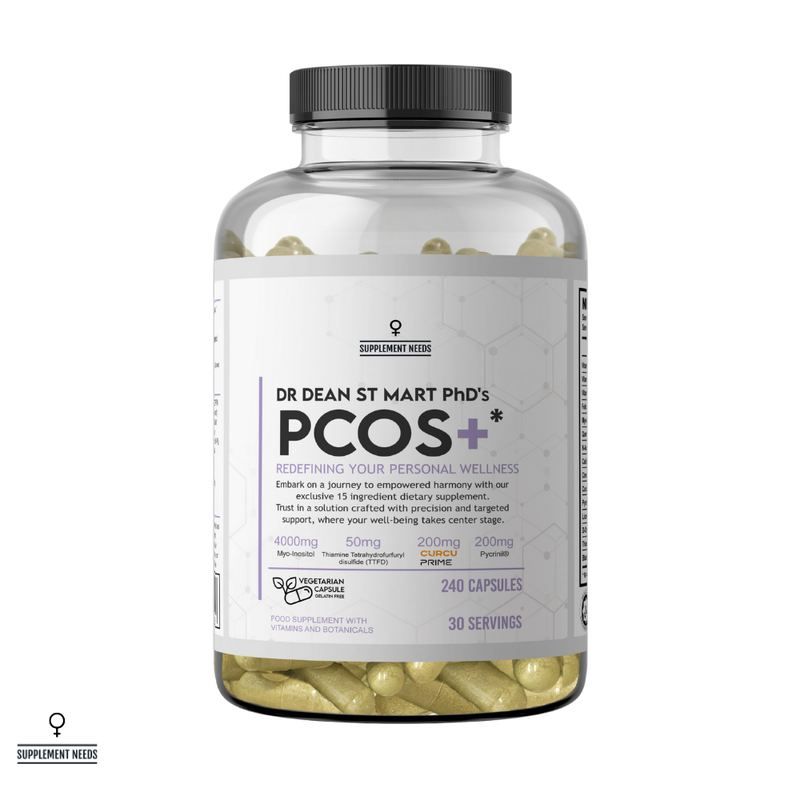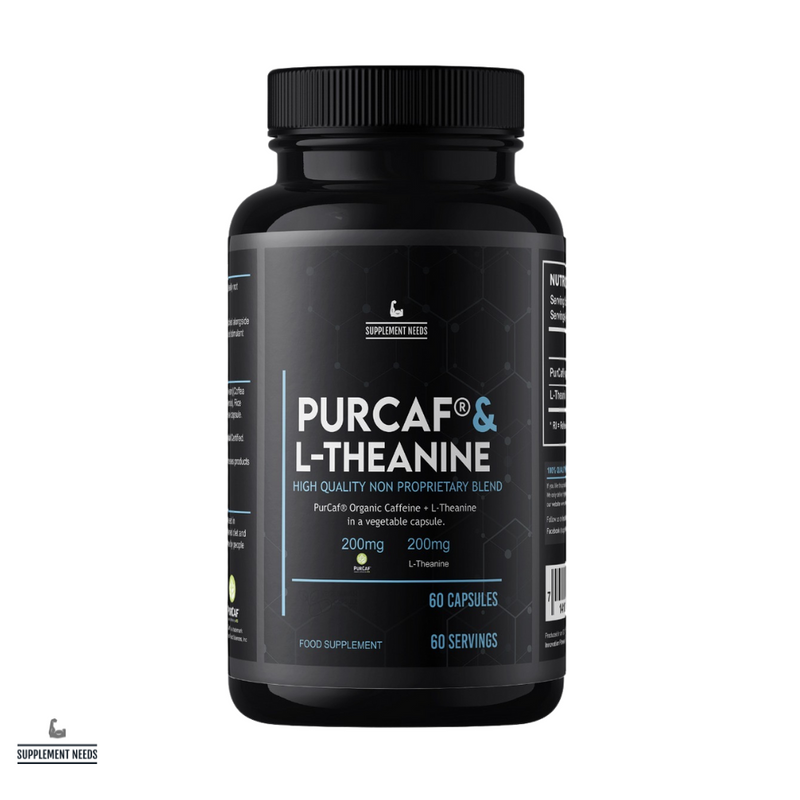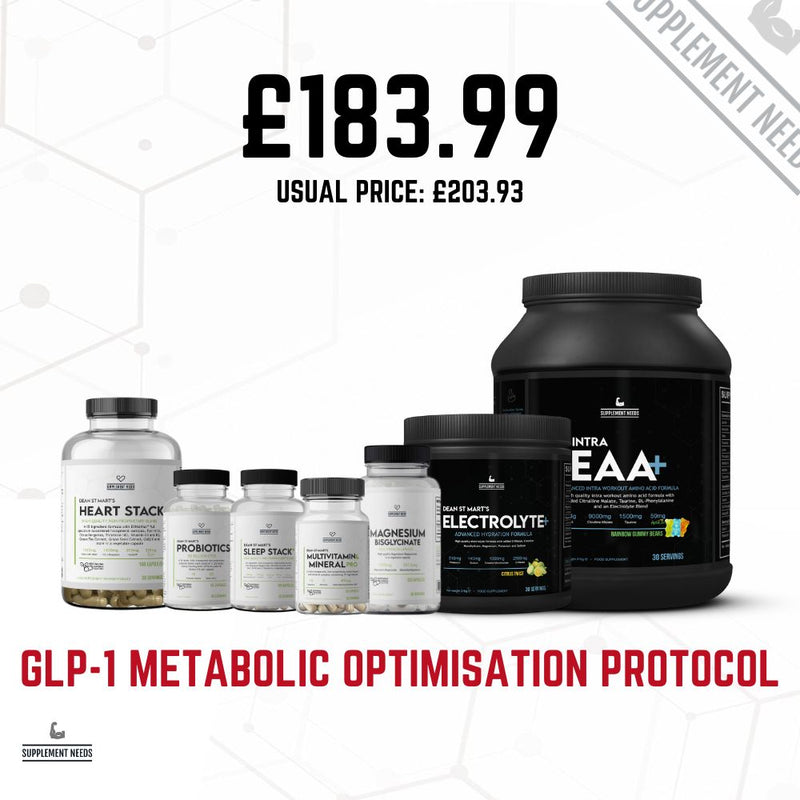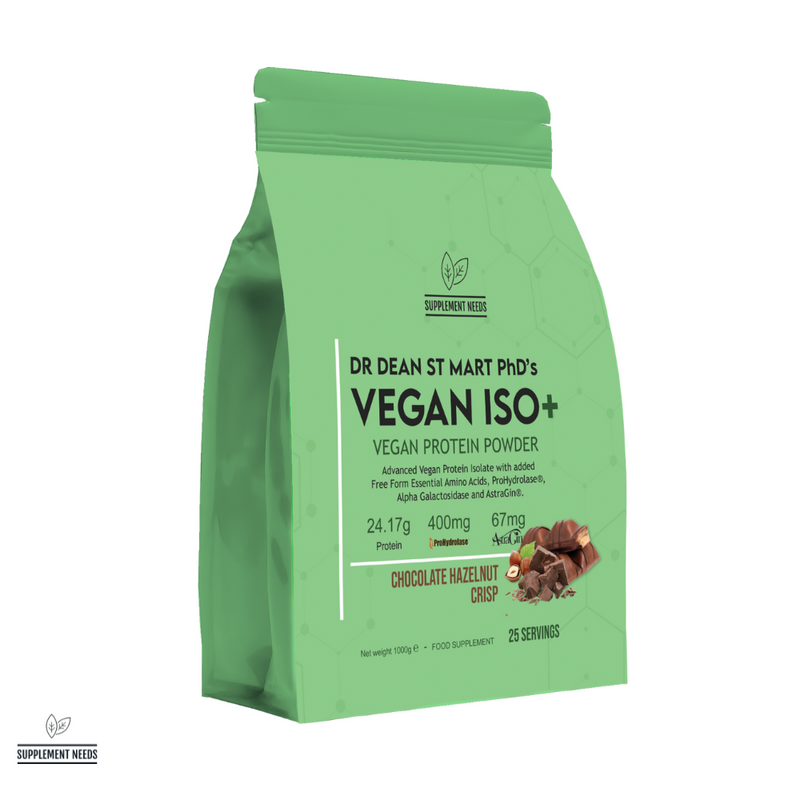Whey protein, perhaps the most common form of supplemental protein, can be an excellent addition to a training routine. However, since it’s derived from milk, this means it isn’t suitable for those who follow a vegan diet, have a lactose intolerance, or milk allergy.
Instead, you should look for premium sources of lactose free and vegan protein - like the Vegan ISO+ from Supplement Needs.
Especially as plant-based sources, such as vegan protein powders, can stimulate muscle protein synthesis and increase muscle mass comparably to animal sources (Stoodley, Williams, Wood, 2023), including when ingested with a well-balanced whole food vegan diet (Hevia-Larraín et al, 2021).
Vegan protein powder ingredients
Understanding how to get protein on a vegan diet is essential. With the removal of dairy and animal sources, vegan or lactose free diets usually rely on protein-rich foods like nuts and legumes to fulfil their needs. But, you should also explore the option of vegan protein powders as a convenient boost to dietary protein.
Pumpkin protein
In addition to being a rich source of antioxidants, vitamins and minerals, pumpkin seeds have shown to be high in several vital amino acids (Hussain et al, 2023) – the only omissions being lysine and threonine. Fortunately, using blended vegan protein powders can cover these shortfalls, and may even offer more nutritive value to the supplement overall (Vinayashree & Vasu, 2021).
Pumpkin protein has also been shown to have a high bioavailability, similarly to soya (Dotto & Chacha, 2020). This means the body can absorb them easier, allowing you to make the most of your vegan/lactose free protein supplement.
Supplement Needs Vegan ISO+ consists of 60% organic pumpkin protein.
Brown rice
Another high-quality source of vegan protein is brown rice. As studies have demonstrated (Kalman. 2014), brown rice has an excellent amino acid profile, containing both essential and branched chain amino acids. It’s also a rich source of fibre, vitamins, and minerals.
Rice in general also has different protein fractions such as prolamin, glutelin, globulin, and albumin.
Pea protein
Pea proteins have been shown to perform to the same degree as whey supplementation in muscle mass gains, performance body composition and muscle thickness (Hertzler et al, 2020). The same research also discussed how they’re frequently used in combination with other vegan protein powders to counteract the perceived deficiencies and create a complete protein source.
That’s because, unlike other vegan proteins, peas contain all nine of the essential amino acids that the body requires (Shanthakumar et al, 2022).
20% of Supplement Needs Vegan ISO+ is pea protein isolate.
Additional amino acids
Whilst many amino acids are produced internally, there are nine essential amino acids the body must obtain from exogenous dietary sources. These are; histidine, isoleucine, leucine, lysine, methionine, phenylalanine, threonine, tryptophan, and valine.
Vegan protein powders have often come under scrutiny for their amino acid content. This is largely because many plant sources are considered incomplete proteins – often being deficient in the sulphur-containing amino acids like cysteine and methionine, in addition to lysine and threonine (Shanthakumar et al, 2022).
To account for this, high-quality vegan protein powders (like Supplement Needs’ Vegan ISO+) include additional amino acids within their formula, including:
- Leucine.
- Threonine.
- Isoleucine.
- Valine.
- Tryptophan.
- Methionine.
In particular, you should look for lactose free or vegan protein powders with the trio of leucine, isoleucine, and valine.
These three are frequently referred to as BCAAs, or branched-chain amino acids. They ‘not only act as building blocks for tissue protein… but also have other metabolic functions’ (Zhang et al, 2017).
Leucine especially has been well-researched and shown to play a specific role in the mTOR pathway for protein synthesis by regulating the phosphorylation of binding proteins.
Choosing a vegan or lactose-free protein supplement
With all that you’ve just read in mind, it’s clear that choosing the right lactose-free/vegan protein powder can make a difference to your diet.
At Supplement Needs, we have some very compelling reasons to choose us.
- Expert knowledge and development: benefit from evidence-based vegan protein powders formulated and researched by Dr Dean St Mart PhD. Well-respected within the industry, Dr Dean has a double first class honours degree in chemistry and pharmaceutical chemistry and a further PhD in synthetic organic chemistry and fluorescence spectroscopy to draw upon.
- High-quality manufacturing: our product range is manufactured exclusively in the UK in-line with Good Manufacturing Practice (GMP) and ISO standards. This ensures the safety, consistency, and premium quality of everything within the Supplement Needs collection.
- Ingredient transparency: knowing exactly what is in your vegan protein powders is vital – especially for lactose free protein powders for allergies or intolerances. That’s why, at Supplement Needs we are explicitly clear about all of our ingredients, whatever the range.
Guide - want to know more about lactose-free protein powders? Then read our complete buying guide to find out everything you need to know.
Vegan and lactose free options with Supplement Needs
If you follow a vegan diet, or have a lactose sensitivity, discover our premium collection of Vegan Supplements to support your health from Supplement Needs.
With worldwide shipping, order online today for free delivery on orders over £20 - and make use of our same-day dispatch on any orders made before 3pm (Monday - Friday).
